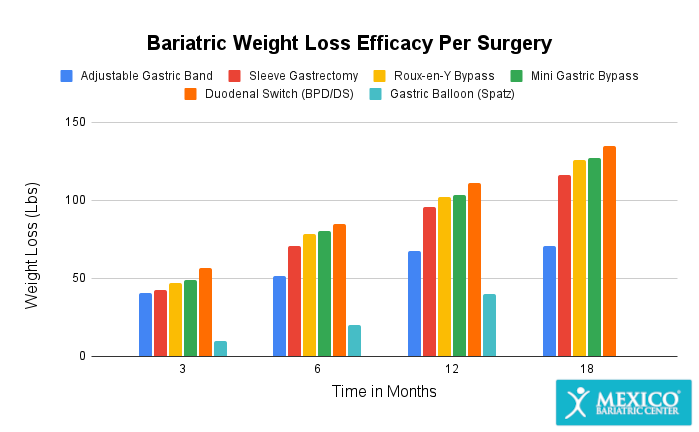Bariatric surgery can be a life-changing decision for people struggling with obesity. A bariatric surgery calculator is a useful tool that helps patients and doctors predict potential outcomes.
These calculators use data from many surgeries to estimate weight loss and health improvements after different procedures.
Bariatric surgery calculators can predict a patient’s expected weight loss, risk of complications, and chances of improving health issues like diabetes. This information helps people make informed choices about their treatment options.
It also lets doctors tailor their advice to each patient’s needs.
Using a bariatric surgery calculator is simple. You enter information like your current weight, height, age, and health conditions.
The calculator then shows estimates for different surgery types. This can include how much weight you might lose and how likely you are to see improvements in other health problems.
Key Takeaways
- Bariatric surgery calculators predict outcomes for weight loss procedures
- These tools help patients and doctors make informed treatment decisions
- Calculators use personal data to estimate weight loss and health improvements
Understanding Bariatric Surgery
Bariatric surgery helps people with severe obesity lose weight. It changes the digestive system to limit food intake or absorption. Different types of surgeries exist, each with unique benefits and qualifications.
Types of Bariatric Surgeries
Gastric bypass is a common bariatric procedure. It creates a small pouch from the stomach and connects it to the small intestine. This limits food intake and absorption.
Gastric sleeve surgery removes a large part of the stomach. It leaves a narrow tube or “sleeve” that holds less food.
Duodenal switch is a complex procedure. It combines stomach reduction with intestinal rerouting. This type greatly limits calorie absorption.
Roux-en-Y gastric bypass divides the stomach into two parts. The smaller upper part is connected directly to the small intestine.
Benefits of Bariatric Surgery
Bariatric surgery leads to significant weight loss. Many patients lose 60-80% of excess weight within 1-2 years.
It improves obesity-related health issues like:
- Type 2 diabetes
- High blood pressure
- Sleep apnea
- Joint pain
Quality of life often improves after surgery. Patients report better mobility, self-esteem, and social interactions.
Some surgeries can be reversed if needed. This offers flexibility for future health decisions.
Qualifying for Bariatric Surgery
Body Mass Index (BMI) is a key factor. Most surgeons require a BMI of 40 or higher. Some accept BMI 35-40 with serious health issues.
Patients must show they’ve tried other weight loss methods. This includes diet, exercise, and medication.
A psychological evaluation is often required. It ensures patients can handle lifestyle changes after surgery.
Age limits vary. Most programs accept adults 18-65. Some offer surgery for teens or older adults.
Insurance may cover surgery if medical criteria are met. Patients should check with providers about coverage options.
Calculating Bariatric Surgery Outcomes
Bariatric surgery calculators help patients and doctors predict potential results. These tools estimate weight loss and complication risks based on patient data.
Estimating Weight Loss
Bariatric surgery weight loss calculators use patient information to project outcomes. They consider factors like:
- Current weight and BMI
- Age and gender
- Type of surgery
Most patients can expect to lose 50-80% of excess weight within 1-2 years. Results vary by procedure:
- Gastric bypass: 60-80% excess weight loss
- Sleeve gastrectomy: 50-70% excess weight loss
- Adjustable gastric banding: 40-50% excess weight loss
Calculators help set realistic weight loss goals. They show expected BMI changes and potential health improvements.
Understanding Complication Rates
Surgical risk calculators estimate the chance of problems after bariatric surgery. They look at:
- Patient health history
- Surgical procedure type
- Hospital quality
Common complications include:
- Infection (1-3% risk)
- Bleeding (1-2% risk)
- Blood clots (1% risk)
Severe complications are rare but possible. Death rates are typically below 0.5%.
Risk factors that increase complication rates:
- Older age
- Higher BMI
- Existing health problems
Patients use these tools to weigh benefits against risks. Doctors use them to plan safer surgeries.
Diet and Nutrition Post-Surgery
After bariatric surgery, diet and nutrition play a crucial role in recovery and long-term success. Patients must follow specific guidelines to ensure proper healing and achieve their weight loss goals.
Recommended Diet Plan
The post-surgery diet plan typically progresses through several stages. It starts with clear liquids for the first few days. Patients then move to full liquids like protein shakes and thin soups.
Next comes pureed foods, followed by soft foods. Finally, patients transition to regular solid foods.
Portion sizes are very small at first. Meals should be about 1/4 cup in volume initially. This gradually increases to 1 cup per meal over several months.
Protein intake is critical. Bariatric patients should aim for 60-80 grams of protein daily. This helps preserve muscle mass during rapid weight loss.
Patients must eat slowly and chew thoroughly. They should avoid drinking with meals, as this can overfill the stomach pouch.
Nutrition After Bariatric Surgery
Proper nutrition is key for bariatric patients to reach their ideal weight. A balanced diet should include:
- Lean proteins (chicken, fish, eggs)
- Low-fat dairy
- Fruits and vegetables
- Whole grains in small amounts
Patients must take daily vitamin and mineral supplements. This prevents deficiencies common after surgery. Key nutrients include:
- Vitamin B12
- Iron
- Calcium
- Vitamin D
Staying hydrated is crucial. Patients should aim for 64 ounces of water daily, sipped slowly between meals.
Foods to avoid include sugary drinks, high-fat foods, and empty calories. These can slow weight loss or cause dumping syndrome.
Regular check-ups with a dietitian help ensure patients meet their nutritional needs while maximizing excess weight loss.
Frequently Asked Questions
Bariatric surgery calculators help patients understand potential outcomes and risks. These tools provide estimates for weight loss, complication rates, and lifestyle changes after different procedures.
How do you calculate expected weight loss after bariatric surgery?
Bariatric surgery calculators use patient data to estimate weight loss. They factor in age, starting weight, height, and chosen procedure.
The calculator then predicts weight loss at different time points after surgery.
Weight loss is often shown as a percentage of excess weight lost. This helps patients set realistic goals for their progress.
What is a realistic timeline for weight loss following gastric bypass surgery?
Gastric bypass patients typically lose weight rapidly in the first 6 months. Many reach 50-60% of their excess weight loss by 6 months post-surgery.
Weight loss usually continues for 12-18 months after surgery. Most patients achieve their maximum weight loss around 2 years post-op.
How is excess body weight calculated for someone considering bariatric surgery?
Excess weight is the difference between a person’s current weight and their ideal weight. Ideal weight is based on height and a BMI of 25.
To calculate excess weight, subtract ideal weight from current weight. This number helps determine eligibility for surgery and track progress.
What are the long-term dietary restrictions post-bariatric surgery?
Bariatric surgery patients must follow a strict diet long-term. They need to eat small, frequent meals and chew food thoroughly.
High-protein, low-fat foods are important. Patients must avoid sugary and high-calorie foods. They also need to take vitamins and minerals daily.
What factors influence the success rate of bariatric surgery?
Success depends on patient commitment to lifestyle changes. Following dietary guidelines and exercise plans is crucial.
Other factors include starting BMI, age, and overall health. The type of surgery and surgeon’s experience also play a role.
How should weight loss be tracked after a gastric sleeve procedure?
Patients should weigh themselves regularly, usually once a week. They should record their weight and track changes over time.
Many doctors recommend using body measurements and progress photos. These methods can show changes when the scale doesn’t move.


1 thought on “Bariatric Surgery Calculator: Estimate Your Weight Loss Potential”